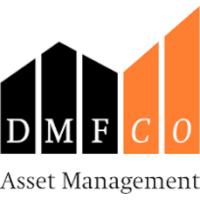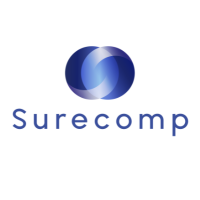Using Tech to Tackle Trade Tariff Turbulence
By Surecomp
The current trade wars driven by US tariffs have significantly altered the economic landscape, affecting trade flows and increasing costs for businesses worldwide.

The tariffs are resulting in huge supply chain disruption, increased currency volatility and contributing to rising inflation and slowing economic growth, which poses great challenges for accurate financial planning and forecasting. Companies the world over are having to re-evaluate trading partners, funding strategies and risk management practices.
Here’s a more detailed summary of the impact these tariffs are having on company operations:
Increased Costs and Shrinking Margins
Tariffs directly raise the cost of importing and exporting goods.
- Higher raw material and component costs: Companies sourcing internationally pay more, especially in industries like manufacturing, automotive, electronics, and consumer goods.
- Profit margin pressure: Companies often can’t fully pass those extra costs onto customers without risking lost sales, so their margins shrink.
- Operational cost spikes: Beyond goods, increased customs duties and regulatory compliance add new layers of hidden expenses.
Supply Chain Disruption and Complexity
Tariffs force companies to rethink and reroute their supply chains.
- Supplier shifts: Many are moving production to tariff-free or lower-tariff regions, but reconfiguring a supply chain takes time and money.
- Delays and uncertainty: New sourcing strategies, customs processing delays, and administrative bottlenecks increase lead times and reduce predictability.
- Logistics reorganization: Finding new trading partners, carriers, and distribution hubs becomes necessary but costly and complex.
Pricing Volatility and Competitive Disadvantage
The unpredictability of tariffs (being raised, lowered, or introduced with little warning) wreaks havoc on pricing models.
- Dynamic pricing issues: Companies are forced into rapid price adjustments, leading to customer dissatisfaction.
- Loss of competitiveness: If competitors in non-tariffed countries offer lower prices, companies affected by tariffs can lose significant market share.
Cash Flow and Working Capital Strain
Upfront duties and taxes must often be paid before goods clear customs.
- Tied-up capital: Companies have to carry more inventory to buffer against delays and cost fluctuations, which burdens their working capital.
- Higher financing costs: Rising interest rates, often accompanying tariff increases, amplify the cost of managing cash flow, while the need for finance increases.
Regulatory and Compliance Challenges
Each country has its own tariff rules, exemptions, and paperwork.
- Complex compliance burden: Managing customs documentation, tariff classifications, and exemptions becomes resource-intensive.
- Risk of penalties: Mistakes in compliance can lead to costly fines, shipment seizures, or brand reputation damage.
Strategic and Long-term Uncertainty
Tariffs often change based on political negotiations.
- Planning paralysis: Companies find it harder to plan long-term investments, capacity expansions, or new market entries.
- Reluctance to invest: Businesses may delay growth initiatives or M&A activities due to an unpredictable global environment.
Using Tech to Tackle Trade Tariffs
Managing liquidity and working capital to maintain supply chains is crucial for importers and exporters, so companies are placing ever greater demand on their banking partners to deliver fast and flexible trade finance services. Meanwhile, banks need to deliver fast and flexible trade finance services to remain competitive while managing their risk and compliance.
Underscoring all this uncertainty is the importance of agility and resilience, and one of the best enablers of agility and resilience is technology. Digital trade finance has emerged as critical for both banks and corporates in the current trade landscape. Digital solutions like Surecomp’s RIVO™ provide real-time visibility, agility, and efficiency, allowing stakeholders to communicate seamlessly and respond swiftly to changing conditions.
Enhanced Transparency and Risk Management
RIVO™ offers real-time tracking of transactions, shipments, and payments. This transparency reduces risks and facilitates faster decision-making, essential for adapting to sudden tariff changes or supply chain disruptions.
Streamlined Operations and Reduced Costs
By automating document handling, compliance checks, and payment processes, digital platforms significantly reduce operational costs. This is particularly valuable when corporates face margin pressures due to tariff-induced cost increases.
Greater Access to Financing
With RIVO™, banks can better assess client risk and offer tailored financing options such as supply chain finance, receivables financing, and dynamic discounting. This helps corporates maintain liquidity and continue operations even when facing unexpected tariff barriers.
How Surecomp Supports Resilience
Surecomp is a global leader in digital trade finance solutions, and is uniquely positioned to help banks and corporates navigate trade uncertainty together.
- End-to-End Digitalization: Surecomp’s solutions cover the entire trade finance lifecycle, from initiation to settlement, reducing manual errors and speeding up processing times.
- Compliance and Risk Management: Integrated compliance tools ensure that transactions meet evolving regulatory requirements, minimizing exposure to compliance breaches.
- Flexible, Scalable Platforms: Surecomp offers modular solutions that can adapt to clients’ evolving needs, whether they are diversifying suppliers, expanding into new markets, or adjusting to new trade regulations.
- Cloud-Based Resilience: Surecomp’s Trade Finance as-a-Service (TFaaS) solution ensures continuous access, scalability, and security, critical for maintaining operations in volatile environments.
Trade tariffs are having a huge impact on global trade. Banks and corporates must remain agile, resilient, and digitally empowered to weather ongoing and future uncertainties. By embracing digital trade finance solutions like those offered by Surecomp, they can not only survive but thrive in an increasingly unpredictable global economy.
Can’t get enough? Check out these latest items
 https://treasuryxl.com/wp-content/uploads/2024/01/Template_VACANCY-featured.png
200
200
treasuryXL
https://treasuryxl.com/wp-content/uploads/2018/07/treasuryXL-logo-300x56.png
treasuryXL2026-02-27 07:00:272026-02-26 14:56:40Vacancy Treasury Analyst – Utrecht
https://treasuryxl.com/wp-content/uploads/2024/01/Template_VACANCY-featured.png
200
200
treasuryXL
https://treasuryxl.com/wp-content/uploads/2018/07/treasuryXL-logo-300x56.png
treasuryXL2026-02-27 07:00:272026-02-26 14:56:40Vacancy Treasury Analyst – Utrecht https://treasuryxl.com/wp-content/uploads/2026/02/Live-Session-ETR-Digital.png
200
200
treasuryXL
https://treasuryxl.com/wp-content/uploads/2018/07/treasuryXL-logo-300x56.png
treasuryXL2026-02-26 11:49:192026-02-26 11:51:12Live Session: The New Way Treasurers Are Managing Payables – Old Tool, New Tricks
https://treasuryxl.com/wp-content/uploads/2026/02/Live-Session-ETR-Digital.png
200
200
treasuryXL
https://treasuryxl.com/wp-content/uploads/2018/07/treasuryXL-logo-300x56.png
treasuryXL2026-02-26 11:49:192026-02-26 11:51:12Live Session: The New Way Treasurers Are Managing Payables – Old Tool, New Tricks https://treasuryxl.com/wp-content/uploads/2025/10/Garanti-BBVA.png
200
200
treasuryXL
https://treasuryxl.com/wp-content/uploads/2018/07/treasuryXL-logo-300x56.png
treasuryXL2026-02-26 08:55:122026-02-26 09:00:51ALM Professional @ Garanti BBVA International
https://treasuryxl.com/wp-content/uploads/2025/10/Garanti-BBVA.png
200
200
treasuryXL
https://treasuryxl.com/wp-content/uploads/2018/07/treasuryXL-logo-300x56.png
treasuryXL2026-02-26 08:55:122026-02-26 09:00:51ALM Professional @ Garanti BBVA International https://treasuryxl.com/wp-content/uploads/2025/10/Garanti-BBVA.png
200
200
treasuryXL
https://treasuryxl.com/wp-content/uploads/2018/07/treasuryXL-logo-300x56.png
treasuryXL2026-02-26 08:47:112026-02-26 08:56:21ALM Associate @ Garanti BBVA International
https://treasuryxl.com/wp-content/uploads/2025/10/Garanti-BBVA.png
200
200
treasuryXL
https://treasuryxl.com/wp-content/uploads/2018/07/treasuryXL-logo-300x56.png
treasuryXL2026-02-26 08:47:112026-02-26 08:56:21ALM Associate @ Garanti BBVA International https://treasuryxl.com/wp-content/uploads/2026/02/DMFCO.png
200
200
treasuryXL
https://treasuryxl.com/wp-content/uploads/2018/07/treasuryXL-logo-300x56.png
treasuryXL2026-02-26 08:26:152026-02-26 09:00:42Analist Capital Markets @ DMFCO Asset Management
https://treasuryxl.com/wp-content/uploads/2026/02/DMFCO.png
200
200
treasuryXL
https://treasuryxl.com/wp-content/uploads/2018/07/treasuryXL-logo-300x56.png
treasuryXL2026-02-26 08:26:152026-02-26 09:00:42Analist Capital Markets @ DMFCO Asset Management https://treasuryxl.com/wp-content/uploads/2025/04/Treasury-Spring-van-Template-2.png
200
200
treasuryXL
https://treasuryxl.com/wp-content/uploads/2018/07/treasuryXL-logo-300x56.png
treasuryXL2026-02-26 07:00:212026-02-25 15:33:53Rollercoaster markets as rates stay on hold
https://treasuryxl.com/wp-content/uploads/2025/04/Treasury-Spring-van-Template-2.png
200
200
treasuryXL
https://treasuryxl.com/wp-content/uploads/2018/07/treasuryXL-logo-300x56.png
treasuryXL2026-02-26 07:00:212026-02-25 15:33:53Rollercoaster markets as rates stay on hold https://treasuryxl.com/wp-content/uploads/2023/03/Treasurer-Search-Logo.png
200
200
treasuryXL
https://treasuryxl.com/wp-content/uploads/2018/07/treasuryXL-logo-300x56.png
treasuryXL2026-02-25 14:32:182026-02-25 14:32:18Treasury Analyst @ Treasurer Search
https://treasuryxl.com/wp-content/uploads/2023/03/Treasurer-Search-Logo.png
200
200
treasuryXL
https://treasuryxl.com/wp-content/uploads/2018/07/treasuryXL-logo-300x56.png
treasuryXL2026-02-25 14:32:182026-02-25 14:32:18Treasury Analyst @ Treasurer Search https://treasuryxl.com/wp-content/uploads/2025/02/LSEG-BLOGS-featured-13.png
200
200
treasuryXL
https://treasuryxl.com/wp-content/uploads/2018/07/treasuryXL-logo-300x56.png
treasuryXL2026-02-25 07:00:572026-02-25 07:22:58Lookback 2025: Volatility and technology drive pricing trends
https://treasuryxl.com/wp-content/uploads/2025/02/LSEG-BLOGS-featured-13.png
200
200
treasuryXL
https://treasuryxl.com/wp-content/uploads/2018/07/treasuryXL-logo-300x56.png
treasuryXL2026-02-25 07:00:572026-02-25 07:22:58Lookback 2025: Volatility and technology drive pricing trends https://treasuryxl.com/wp-content/uploads/2026/02/Nomentia-BLOGS-featured.png
200
200
treasuryXL
https://treasuryxl.com/wp-content/uploads/2018/07/treasuryXL-logo-300x56.png
treasuryXL2026-02-24 07:00:562026-02-23 16:40:30Nomentia Treasury Trends Report 2026
https://treasuryxl.com/wp-content/uploads/2026/02/Nomentia-BLOGS-featured.png
200
200
treasuryXL
https://treasuryxl.com/wp-content/uploads/2018/07/treasuryXL-logo-300x56.png
treasuryXL2026-02-24 07:00:562026-02-23 16:40:30Nomentia Treasury Trends Report 2026


